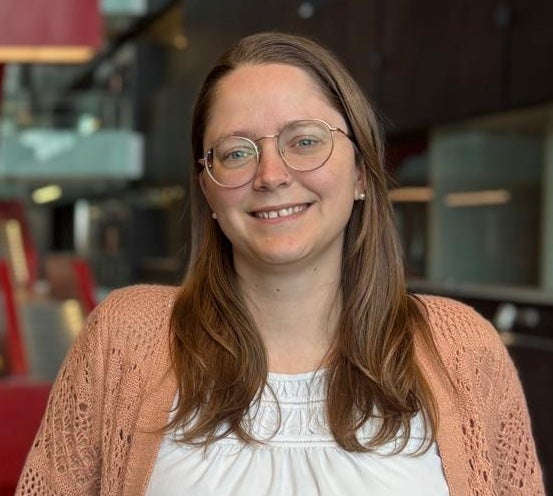A University of Waterloo professor is part of an international coalition revolutionizing vaccine production with new health-care technology. The tech aims to support local vaccine production, cutting the vaccine production time from nine days to just one day, and save millions of lives and dollars as a result.
Dr. Valerie Ward, a professor in the Department of Chemical Engineering, is working with researchers and industry partners in Brazil, the UK and Canada to make small transportable units that can manufacture vaccines on-site, giving healthcare professionals and authorities the means to respond to local outbreaks as quickly as possible.
Many countries lack the infrastructure to produce vaccines locally and do not have access to the necessary equipment, such as ultra-low temperature freezers to store some kinds of vaccines. Only 50 per cent of people in low-income countries are adequately vaccinated, underscoring the need for swift and equitable responses to future epidemics and pandemics.
The research coalition is led by the Centre for Process Innovation (CPI) and received $2.8 million from the Coalition of Epidemic Preparedness Innovation (CEPI). The grant focuses on developing technology to meet two specific goals. The first is the rapid production of vaccines. The second is to decentralize manufacturing so it can be produced at different sites in smaller batches. The CEPI-CPI partnership backs the 100 Days Mission, a G7 and G20 initiative aimed at cutting vaccine development timelines in response to pandemics.
Game-changing tech
At the heart of this initiative is MANGO (Manufacturing on the Go), a device developed by Dr. Keith Pardee at the University of Toronto, that promises to automate the process of Viral-Like Particle (VLP) manufacturing for vaccine production.
VLPs are proteins that are so similar to viruses that the immune system responds to them as if they are a virus - making them an important component in many vaccines. The problem is that the current process to manufacture VLPs is slow as it requires living cells. The MANGO device speeds up VLP manufacturing by using a technique called cell-free expression which does not rely on living cells, reducing the process from days to hours.
 Dr. Valerie Ward, a professor of chemical engineering and Canada Research Chair in Microalgae Biomanufacturing.
Dr. Valerie Ward, a professor of chemical engineering and Canada Research Chair in Microalgae Biomanufacturing.
"VLPs are one of the new technologies for vaccines," Ward says. "They have all the virus proteins and structures, so the body sees it as a real virus, but it doesn't contain genetic parts of the virus, so it's very safe for infants, children and adults."
Cell-free or not, there are compounds that need to be removed during the VLP manufacturing process to ensure purity. Ward, a Canada Research Chair in Microalgae Biomanufacturing, will play a critical role in ensuring the purity of vaccines created by the MANGO device. Her research focuses on programming the device to autonomously purify vaccines, reducing production costs significantly.
Flip the script, change the outcome
The coalition's on-site vaccine manufacturing solution means that authorized users can load the required materials, such as DNA, for a specific vaccine into the MANGO device and it will create and purify a VLP-based vaccine on the spot. When people are ill, time is of the essence - this is a faster, more affordable and more effective approach to requesting and waiting for a vaccine delivery.
"We're developing a technology that works better as a small-scale device for purification. We're flipping the script -usually, with vaccines, you scale production up, not down. Here, we are doing the opposite to make life-saving vaccines more accessible," Ward says.
The non-profit coalition for academic innovation includes partners from Imperial College London, the University of Leeds, University of Toronto, Liberum Biotech, University of Waterloo and the Oswaldo Cruz Foundation.






